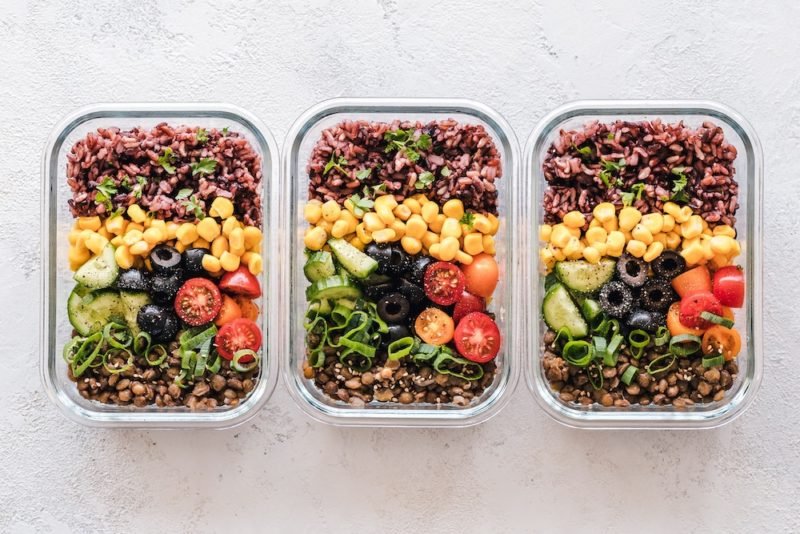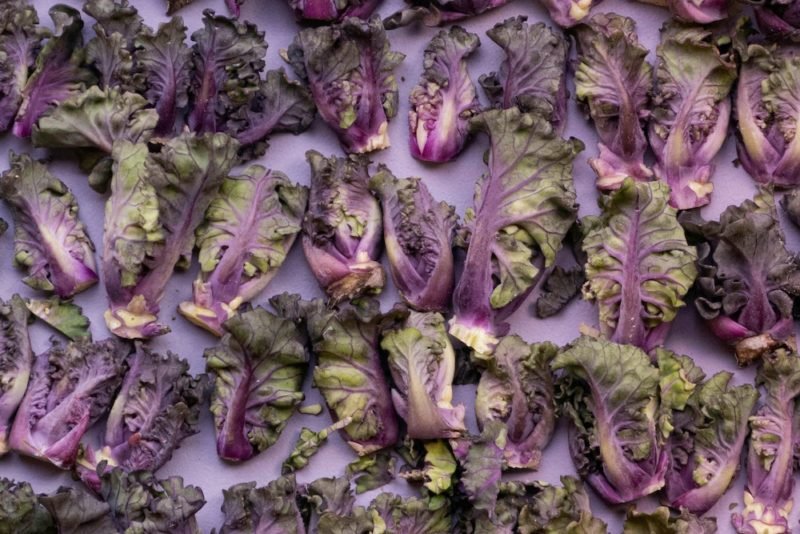
The concept of eating a “plant-based” diet has been becoming more popular over the past few years, and it appears that it’s gaining even more traction as the coronavirus pandemic grinds on.
According to new consumer research from the Plant Based Foods Association, U.S. retail sales of plant-based foods are outpacing total food sales during the pandemic. Specifically, sales of plant-based meats are showing strong growth while growth of animal meat sales is slowing, and sales of soy-based foods like tofu and tempeh are also up. Now, some of this may be partly due to issues with meat processing plant, but the data collection ended April 19, before we started to see meat shortages at some stores.
Whatever the reason, given that the meat supply chain has taken a hit, now may be a good time to experiment with more meatless meals. It’s good for us, physically, and if it helps calm any anxiety that might be arising related to scarcity (or the perception of scarcity), then it’s good for us mentally, too.

What’s in a name?
First, let me clear up a few things, because “plant-based” is a label that can be confusing. On one hand, many people shy away from the notion of eating plant-based because they assume that plant-based is code for vegan. On the other hand, some people think that eating all plants and no animals guarantees that your diet is healthful and nutritious. But does it?
The research in support of plant-based diets is bountiful, which is likely because of what they include—vitamins, minerals, phytonutrients and fiber—as much as what they don’t—excess saturated fat. But one limitation of much of that research is that it defines “plant-based” as vegetarian. Plant-based diets can take many forms, from vegan to vegetarian to flexitarian to omnivore. The common denominator is that they make plant foods the focal point of the plate. If you choose to eat animal foods like meat, poultry, fish, eggs or dairy, they play smaller, supporting roles.
The other limitation is that the research tends to treat all plant-based diets equally, without regard to food quality. The fact is that many people focus on avoiding certain foods but are blind to whether the rest of their diet is nutritionally adequate. This is one of the perils of demonizing specific foods—no one food makes or breaks a diet, and it’s your overall eating pattern that matters most for health and well-being.

Propaganda vs. science
That’s not the message you get from many of the plant-based diet “documentary” (in other words, propaganda) films that have aired on Netflix and other streaming services. For example, “What the Health,” which was quite the topic of conversation in 2017, blames animal foods for every ill known to man and woman. While excessive amounts of animal protein and fat aren’t good for us, that doesn’t mean that moderate amounts in the context of a plant-rich diet are harmful. An excessive amount of anything isn’t good—even water—and a cupcake is a cupcake, even if it’s vegan.
A study published that same year in the Journal of the American College of Cardiology seemed to agree. It found that when it comes to the plants you eat, quality does count—and omnivores have a place at the plant-based table, too.
Not all plants are created equal
The study, which came from the Harvard T.H. Chan School of Public Health, included more than 200,000 women and men from the Nurses’ Health Study and the Health Professionals Follow-up Study, aimed to get a clearer answer on both quantity and quality of plant foods needed to see a benefit for health. This included the role of animal foods. Researchers measured what proportion of each participant’s diet was plant-based, and whether those plant foods were healthful—vegetables, fruits, whole grains—or unhealthful—sweetened beverages, refined grains, sweets.
They found that a diet rich in healthful plant foods is associated with substantially lower risk of developing heart disease, while a plant-based diet that emphasizes less-healthful plant foods is associated with increased risk of heart disease. Those eating a nutritious plant-based diet while also being more physically active fare even better. I feel like this is a good place to point out that, when it comes to plant-based proteins, the new “faux meats” are highly processed foods. I see them as more of a “fun food,” whereas less-processed staples such as beans, tofu, tempeh and veggie burgers that are concocted from whole foods like beans, lentils, grains and veggies (the type of thing you could make at home if you really wanted to) are better bets.
The study also supports the value of a plant-rich diet even for omnivores. Individuals who ate the least plant foods were eating about five or six servings of animal foods per day, while those with the most plant foods were eating three servings of animal foods. This means that reducing—not eliminating—animal foods even slightly while increasing healthy plant foods has benefits for health. This allows a lot of flexibility with eating. The traditional Mediterranean diet follows this pattern, as do other healthful dietary patterns from around the globe.

Putting the research on your plate
While association does not prove cause and effect, there are various physiological mechanisms that may explain the health benefits of a plant-based diet. Whole and minimally processed plant foods are rich in vitamins, minerals, phytonutrients and antioxidants, along with heart-healthy unsaturated fats and dietary fiber. Together, this can promote healthy blood pressure, blood sugar and cholesterol levels, while lowering inflammation and nourishing your gut microbiota. To reap these benefits, here’s what foods to include:
- Whole grains and foods made from whole grain flour
- Fruits and vegetables
- Nuts, beans and lentils
- Vegetable oils (olive oil, canola oil, avocado oil) in dressings and for cooking
- Tea and coffee
- Healthy animal foods like fish, dairy (milk, yogurt, cheese) and eggs
Final food for thought
In this era of “free-from” foods (lactose-free, gluten-free, GMO-free), I think it’s good to remember that, for nutrition and health, what you do eat matters as much as (if not more than) what you don’t eat. If you need ideas for how to prepare some of the “include” foods — not just vegetables but also plant-based proteins like beans, tofu and tempeh — in last week’s post I included some of my favorite how-to cookbooks and resources.
Disclaimer: All information provided here is of a general nature and is furnished only for educational purposes. This information is not to be taken as medical or other health advice pertaining to an individual’s specific health or medical condition. You agree that the use of this information is at your own risk.
Hi, I’m Carrie Dennett, MPH, RDN, a weight-inclusive registered dietitian, nutrition therapist and body image counselor. I offer compassionate, individualized care for adults of all ages, shapes, sizes and genders who want to break free from eating disorders, disordered eating or chronic dieting. If you need to learn how to manage IBS symptoms with food, or improve your nutrition and lifestyle habits to help manage a current health concern or simply support your overall health and well-being, I help people with that, too.
Need 1-on-1 help for your nutrition, eating, or body image concerns? Schedule a free 20-minute Discovery Call to talk about how I can help you and explore if we’re a good fit! I’m in-network with Regence BCBS, FirstChoice Health and Providence Health Plan, and can bill Blue Cross and/or Blue Shield insurances in many states. If I don’t take your insurance, I can help you seek reimbursement on your own. To learn more, explore my insurance and services areas page.
 Print This Post
Print This Post






